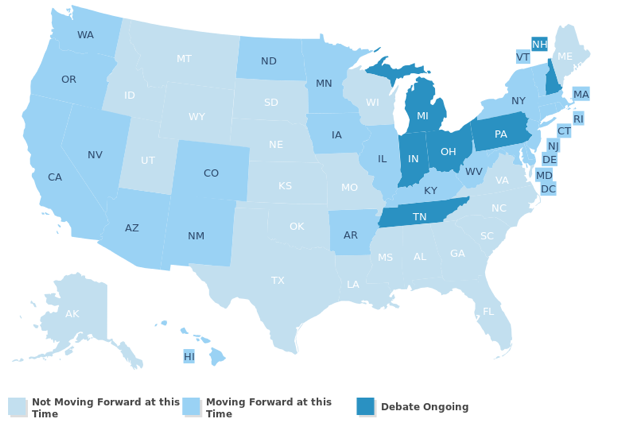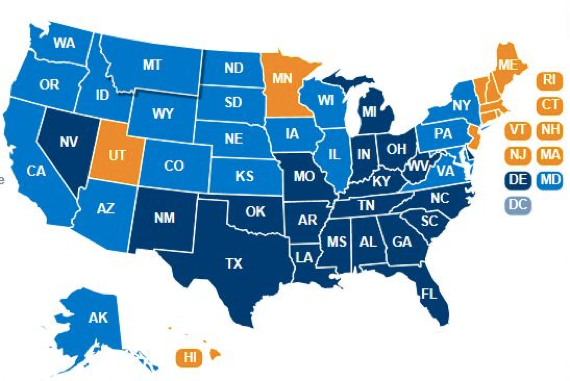The Background
The ACA provides states with the option to expand Medicaid programs to cover up to 138% of the federal poverty level (for individuals that is $15,856 in 2013). However, concerned with how much this will cost, some states are choosing not to expand their programs in 2014 and so states will continue to vary in the income and age qualifications for Medicaid benefits.
Below are two scenarios for residents in states that do not extend Medicaid.
1.) If individual income is greater than 133% of the federal poverty level, insurance can be bought in the Insurance Marketplace for a price based on income. The law provides subsidies to help individuals who earn between 100 and 400 percent of the poverty level.
2.) If individuals earn less than 100% of the federal poverty level and live in a state not expanding Medicaid, they have few options for affordable insurance. They can purchase insurance in the Insurance Marketplace, but will not make enough annually to qualify for financial assistance.
Therefore, for states that do not expand Medicaid, people that make ‘too much’ for the current Medicaid program, but ‘not enough’ for tax credits on the Insurance Marketplace will pay full price for insurance. These individuals will be allowed an ‘exemption’ from the individual mandate and remain without access to insurance.
An illustration of the difference between states
It is confusing. Let me illustrate.
1.) Micky lives in Wisconsin and makes $12,500 annually. With this income, he ‘makes too much’ and does not qualify for the current Medicaid program. Wisconsin is not expanding Medicaid. Therefore, Micky can either pay full price on the Insurance Marketplace or file for an exemption from the individual mandate.
2.) Hector lives in Illinois and makes $12,500 annually. With this income he will receive Medicaid because Illinois is expanding the program.
Micky and Hector make the same amount of money. Micky won’t receive insurance through Medicaid but Hector will. The only difference is the state they live in. With that income, it will be difficult for Micky (and people like him) to afford insurance at full price and therefore he will file for exemptions and will remain uninsured.
Below is a map of the Status of state action on Medicaid expansion decision, as of July 1, 2013. On the map key ‘moving forward at this time’ means that a state has committed to expanding Medicaid.

Now compare the map of states that are expanding Medicaid with the map that ranks the overall health of people in each state. The orange states are the healthiest and dark blue are the least healthy states. People on Medicaid have increased access to care and improved self-reported health compared to the uninsured population. Many of the states with the lowest health rankings are also the states that are not expanding Medicaid.

The question remains
Should those concerned with health equity be celebrating because the Medicaid expansion will help many families get health care? Or should the current Medicaid, given the variations by state, be considered a driving force for further change? Personally, the state variations in the Medicaid expansion is confusing and all Americans would benefit from sweeping, nationwide Medicaid expansion.
This is a very nice overview!
ReplyDelete